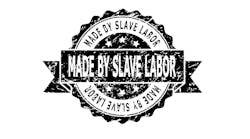Commentary
The Protecting the Right to Organize Act (PRO Act), a bill just passed by the House of Representatives on March 8 and now headed for the Senate, is one of the worst pieces of legislation ever introduced. If enacted in its present form, it would repeal much of the 1947 Taft-Hartley Act and permanently enshrine in law a total imbalance in the relationship between unions and employers.
“While claiming to be pro-worker, we firmly believe today’s legislation is a grab-bag of harmful policies that would deprive millions of workers of their privacy and fundamentally alter our nation’s system of labor relations,” observes U.S. Chamber of Commerce’s senior vice president Glenn Spencer.
Colleen Naumovich and David Pryzbylski, attorneys with the law firm of Barnes & Thornburg, warn employers, “Whether you are a unionized or non-union organization, there are many provisions within the act that would decrease your management flexibility on a number of fronts.”
What the PRO Act proposes to do:
• End all state right-to-work laws.
• Adopt as federal law California’s “ABC” test reclassifying independent contractors as employees if they work in the same line of business as their employers (e.g., truck drivers and trucking companies).
• Prohibit mandatory arbitration agreements in employment contracts.
• Require interest arbitration if the union and employer cannot agree on a collective bargaining agreement.
• Authorize secondary boycotts—allows unions to target any company through picketing and protests, even those unrelated to a labor dispute.
• Ban employers from permanently replacing strikers.
• Institute a “stealth” card check—allows unions to challenge election results and get certified automatically in certain circumstances.
• Provide a private cause of action for unfair labor practices outside of the National Labor Relations Board’s jurisdiction.
• Introduce new civil penalties for labor law violations, including personal liability for members of management.
That’s just the tip of the iceberg. The bill also would permanently reverse all National Labor Relations Board (NLRB) decisions limiting union power that were made during the Trump era and codify all of the pro-union NLRB decisions rendered during the Obama era. This includes “ambush” election rules which shorten the time between filing for an organizing petition and the vote; broadening the definition and burdens of joint-employers; expanding definitions of bargaining units and “micro units;” and requiring attorneys and advisors who work with management to disclose proprietary information about their relationships with employers.
Just how bad is the bill? “The PRO Act would fundamentally redefine labor relations,” says David French, senior vice president for government relations with the National Retail Federation (NRF). “This is a laundry list of extreme labor proposals that are both individually and collectively extremely harmful to employees, employers and the American economy.”
The Coalition for a Democratic Workplace (CDW), representing hundreds of business organizations and associations, states, “In an attempt to increase union membership at any cost, the bill would make radical changes to well-established law, diminish employees’ rights to privacy and association, destroy businesses, particularly small ones, and threaten entire industries that have fueled innovation, entrepreneurship and job creation.”
The unions need all the help they can get. In 2020, private sector union membership rose slightly to 6.3% from 6.2% of the total workforce in 2019—but that is way down from the 35% they enjoyed in the 1970s. Vowing to reverse this trend, President Biden appointed former union officials to major and minor labor posts throughout the federal government and, of course, he heartily endorses the PRO Act.
Eventual enactment is not a sure thing. Although the bill passed the House on a party-line vote, the Democrat majority in the Senate is paper thin. However, the party remains financially dependent on the big labor unions and its congressional majority has shifted further left since a similar bill failed in 2009, the last time that Democrats controlled the White House and the House, and at that time enjoyed a super-majority in the Senate.
This time the PRO Act could be stopped by just one senator—or a handful—if we are lucky.




